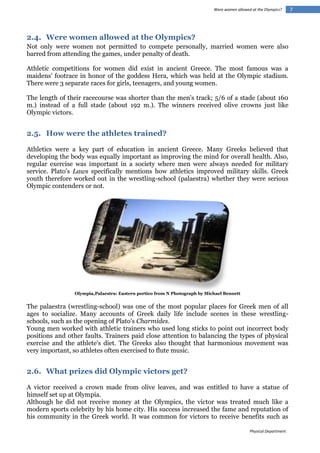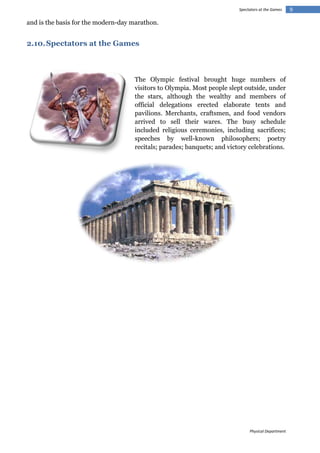The document provides information about the ancient Olympic Games held in Olympia, Greece. It discusses the events included such as running, long jump, wrestling, boxing, and chariot racing. It also describes the context and spirit of the Games, explaining they were part of a major religious festival honoring Zeus and featured political rivalries between Greek city-states. Only free Greek men could compete for the glory of victory, which brought fame to themselves and their hometowns.
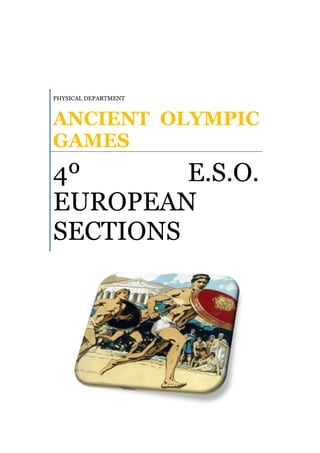
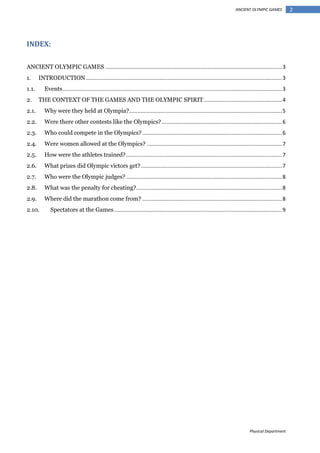
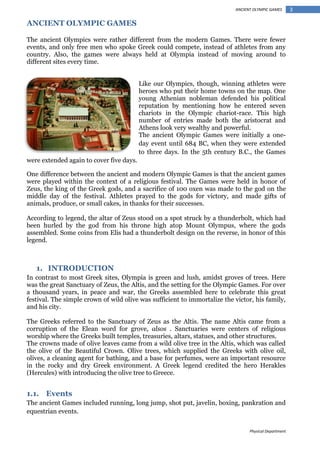
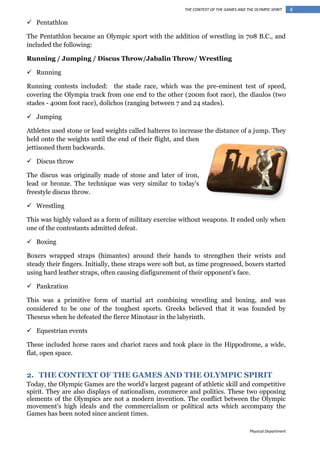
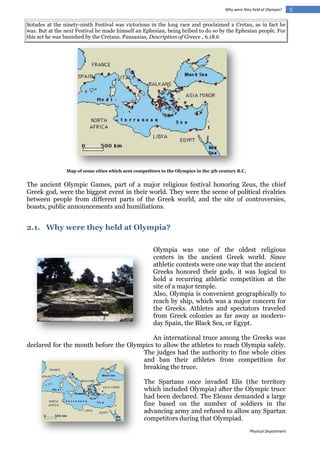
![Were there other contests like the Olympics?
2.2. Were there other contests like the Olympics?
There were 3 other major games which were held on 2- or 4-year cycles: the Isthmean
Games at Corinth, the Pythian Games at Delphi, and the Nemean Games at
Nemea. Because it started 200 years before the other competitions, the Olympics
remained the most famous athletic contest in the ancient Greek world.
Many athletes competed at several athletic festivals. Inscriptions on victor's statues at
Olympia often describe victories in 2, 3, or even all 4 major athletic festivals. Pausanias's
description of Olympian architecture includes a list of the more famous victors' statues, and
summaries of their inscriptions such as this one:
Delphi,Stadium: East end from WPhotograph by Michael Bennett
"Polycles...likewise won a victory with a four-horse chariot, and his statue holds a ribbon in the
right hand...as the inscription on him says, [he] also won the chariot-race at Pytho, the Isthmus
and Nemea." (Pausanias 6.1.7)
2.3. Who could compete in the Olympics?
The Olympics were open to any free-born Greek in the world. There were separate mens'
and boys' divisions for the events.
Women were not allowed to compete in the Games themselves. However, they could enter
equestrian events as the owner of a chariot team or an individual horse, and win victories
that way.
Physical Department
6](https://image.slidesharecdn.com/1ancientolympicgames1-140111104125-phpapp02/85/Ancient-olympic-games-6-320.jpg)
